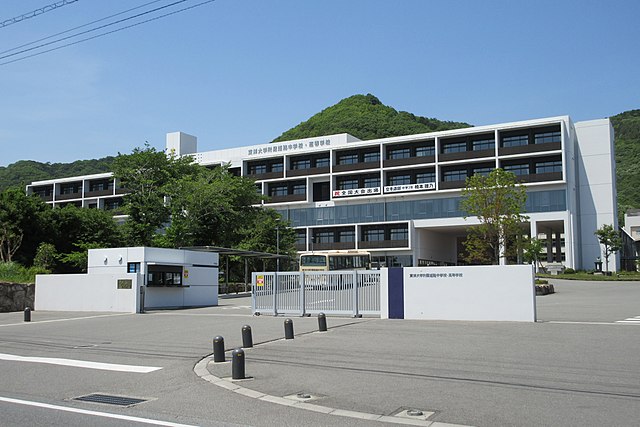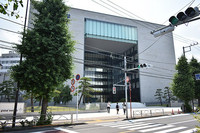Toyo University
University’s presentation
Toyo has a long tradition and history. In 2012, Toyo celebrated the 125th anniversary of its foundation. Toyo is one of the largest universities in Japan with more than 30,000 students.
Toyo University began as a private philosophy academy, founded by Dr. Enryo Inoue in 1887. It was set up on the grounds of the Rinsho Temple in what is the Bunkyo Ward of Tokyo. It was renamed as the Philosophy Academy University in 1903 and then as Toyo University in 1906. It began accepting female students in 1916, making it one of the first co-educational universities in Japan.
It comprises 11 faculties with 44 departments, 10 graduate schools (offering 32 majors), five affiliated high schools and a law school. Research activity is conducted on a global scale with the use of the International Research Centre for Philosophy, the Research Centre for Public/Private Partnership (PPP) and the Bio-Nano Electronics Research Centre. Toyo offers both liberal arts and science courses.
There are four main campuses at Toyo University: Hakusan Campus (the main site), Kawagoe Campus, Asaka Campus and Itakura Campus. All are located in the heart of Tokyo, and can be accessed within 10 minutes from the nearest train station. Hakusan Campus is green and quiet and is surrounded by residential homes and shrines. The Confucian Botanical Garden Koishikawa Korakuen and Tokyo Dome City, with its stadium, amusement park and luxury hotel are also within walking distance.
Toyo’s sports teams, including baseball, track and field, sumo wrestling and ice hockey, demonstrate superior ability in intercollegiate competitions (producing Olympic medalists and numerous professional athletes).
Address
International Affairs Section, Toyo University: 5-28-20 Hakusan, Bunkyo-ku, Tokyo 112-8606
Website
Fields of Education
- Arts and Humanities
- History
- Economic and Social Sciences
- Sciences and Technologies
- Other
Contact person for the incoming exchange students
mlies@toyo.jp
Do you have a Buddy system?
Yes
Academic calendar (link)
Number of students in the institution
30000
Proportion of international students
N/A
Main language of instruction for the courses open to international students
Japanese
Level required
- B1
- B2
Official certification
Official certification asked
Other languages of instruction
English
Level required for the other languages
- B2
Official certification for the other languages
Official certification asked
Catalogue of courses taught in English
Information about Online Courses & Distance Learning
N/A
Linguistic support
The English Community Zone (ECZ) is a space where any student enrolled at Toyo University can come and participate in various programs and informal conversations in English (other languages may be included). Its primary objective is to provide opportunities for students to be exposed to and learn from different cultures and perspectives so that they can be better equipped in international/multicultural settings. The International Affairs Office is responsible for the overall management of the ECZ, but its day-to-day administration is delegated to a team of selected Toyo students made up of regular students as well as study abroad students. All study abroad students are always welcome to come to the ECZ to make friends with Japanese and international students and have fun!
Equivalence of university credits
1 japanese credit = 2 ECTS credits
Additional fees
No
Services available on the campus
- Sports Center
- Library
- Cultural Events
Specific support or facilities for students with disabilities or ALD
On-campus accommodation solutions?
Yes
Accommodation solutions and amounts
98,300JPY/month
Breakdown:
Rent 96,000JPY/month
Renting bedding 2,300 JPY/month
All rooms are singles. There are shared spaces for kitchens, showers, and toilets. Breakfast and dinner on weekdays, electricity, water, heat, and internet are included in the housing fee. If you make excessive use of utilities, you may have to pay a separate overuse fee.

